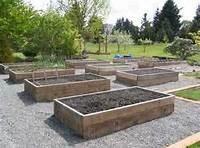The Magic of Broccoli Dehydration: A Guide to Stretching Your Food Budget
In the world of culinary experimentation, finding a great deal on produce can be a delightful surprise. Recently, I stumbled upon a sale of broccoli, a vegetable often overlooked due to its slightly worn appearance. However, instead of seeing it as past its prime, I saw the potential for something extraordinary. In this article, we will explore the magic of broccoli dehydration and how it can stretch your food dollars while minimizing waste.
Parboiling the Broccoli
To begin the process, I decided to parboil the broccoli. Parboiling involves partially cooking the vegetable in boiling water. It only took a minute of boiling, but be cautious as the broccoli becomes steaming hot afterward. To halt the cooking, I transferred the florets to ice-cold water. As a little flavor enhancement, I added a touch of salt to the boiling water.
Draining and Transforming
Once the broccoli was cooled, it was crucial to drain it well before proceeding. The transformation from a limp bag of veggies to vibrant green delights is truly magical. At this point, half of the batch was used in a fresh, raw recipe.
Why Blanching is Important
You may wonder why I chose to blanch the broccoli. The reason is simple: raw broccoli doesn’t fare well during dehydration. Blanching significantly helps, especially if you plan on using the broccoli in cooked recipes later on. The delicate enzymes in broccoli cannot survive extreme temperatures, so blanching before dehydration is a wise choice.
Mastering the Dehydration Process
Now, let’s talk about the dehydration process itself. I am a stickler for consistency, and to ensure even dryness, it’s essential to spread the broccoli out in a single layer and check on it periodically. Thankfully, I have my trusty Excalibur dehydrator, equipped with a handy quick-reference chart, which makes the entire process a breeze. The ultimate goal is to obtain a moisture-free product suitable for long-term storage.
The Power of Dehydrated Broccoli
The final product, although shrunken in size, packs a powerful punch. These lightweight and easily reconstituted morsels are perfect for a variety of dishes, including casseroles, soups, or even as a quick side dish. While fresh broccoli typically doesn’t last for more than a couple of months, these dehydrated gems can be stored for a longer duration.
The Benefits of Dehydration
In conclusion, dehydration goes beyond preserving food. It allows for creativity in the kitchen, stretches your food budget, and minimizes waste. By incorporating the magic of broccoli dehydration into your culinary repertoire, you can unlock a world of possibilities.
Summary
In summary, broccoli dehydration is a technique that offers numerous benefits. By parboiling and blanching the broccoli before dehydration, you can ensure the preservation of flavor and enzymes. Mastering the dehydration process guarantees a moisture-free product with an extended shelf life. Dehydrated broccoli is a versatile ingredient that can be used in a variety of dishes. By embracing dehydration, you can be both creative in the kitchen and conscious of your food budget while reducing waste.
**Frequently Asked Questions**
1. **Can I skip the blanching step and dehydrate raw broccoli directly?**
– Blanching broccoli before dehydration is highly recommended. Raw broccoli doesn’t dehydrate well due to its delicate enzymes.
2. **How long can dehydrated broccoli be stored?**
– Dehydrated broccoli can be stored for several months if kept in proper airtight containers or vacuum-sealed bags.
3. **What’s the best way to rehydrate dehydrated broccoli?**
– To rehydrate dehydrated broccoli, simply soak it in hot water for a few minutes or add it directly to soups and stews while cooking.
4. **Can dehydrated broccoli be used in salads?**
– Dehydrated broccoli is not suitable for salads. It is best used in cooked recipes such as casseroles, stir-fries, or soups.
5. **Are there any nutrients lost during the dehydration process?**
– While dehydration can lead to some nutrient loss, dehydrated broccoli still retains a significant amount of its vitamins and minerals compared to other preservation methods.








